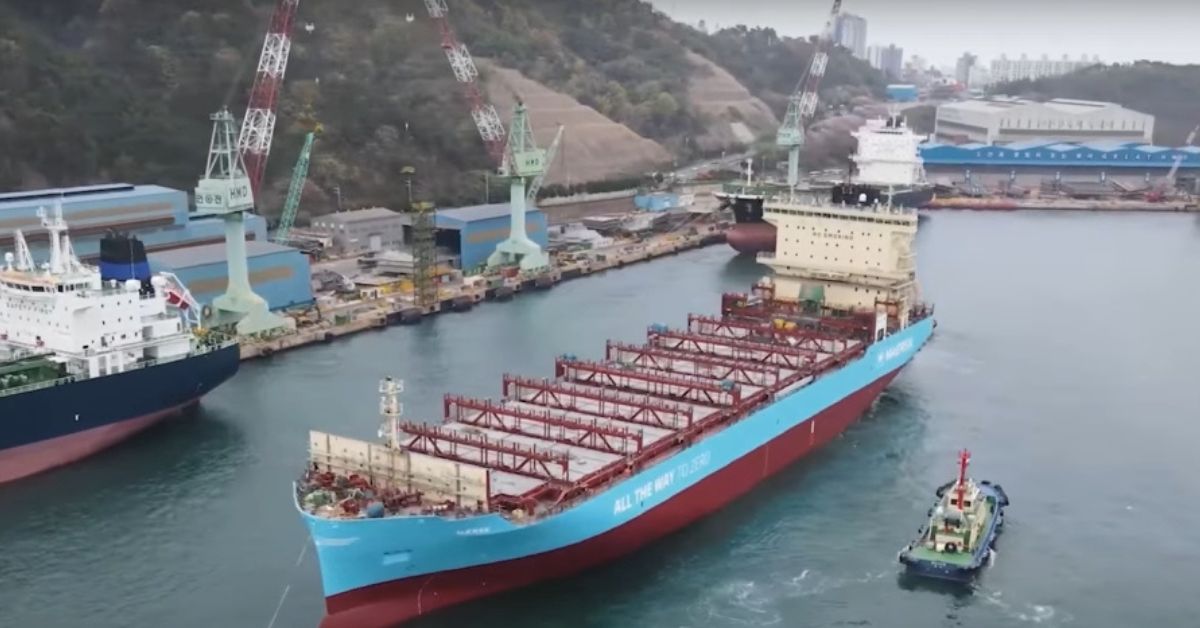Methanol, once a promising alternative fuel backed by Maersk, has lost its momentum. Maersk’s pivot to bio-LNG-powered vessels reflects this shift, compounded by several challenges.
The global shipping sector faces formidable challenges on its path to achieving net-zero emissions by 2050. The latest analysis by class society DNV sheds light on both the progress made and the obstacles that lie ahead. While dual-fuel capable engines make up nearly half of the current vessel orderbook, the fact that 93% of the global fleet still relies on conventional fuels highlights the scale of the transition required.
In this context, methanol, once heralded as a promising alternative fuel in the decarbonisation drive, has been losing its appeal. Initially buoyed by significant backing from shipping giant Maersk, which invested heavily in methanol-ready vessels and partnerships with producers, methanol’s momentum has recently waned. Maersk’s shift of focus to bio-LNG-powered vessels further reflects the diminished enthusiasm for methanol. DNV’s report underscores this trend, pointing out that while methanol remains a potential option, excitement around it has notably faded. Supporting this observation, the Methanol Institute reports that around 70% of planned methanol production facilities are yet to secure final investment decisions.
Factors behind the methanol slowdown
A combination of challenges contributes to methanol’s declining uptake:
• Limited availability of e-fuels like green methanol may delay its adoption in maritime engines.
• Global economic uncertainty and a slowdown in the petrochemical sector dampen demand for methanol, a key chemical feedstock.
• Competition from alternative fuels, such as LNG and biofuels, impacts methanol’s market share. • Some reports suggest a shift in focus toward energy efficiency as a primary strategy for decarbonization, rather than relying solely on alternative fuels.
• Technical hurdles in developing methanol-based technologies, including fuel cells and methanol-toolefins processes, slow progress.
• Slower-than-expected growth in methanol demand from industries such as automotive, construction, and plastics further weighs on its adoption.
• Insufficient infrastructure for methanol storage, transportation, and distribution poses significant barriers, especially in regions where alternative fuels are more entrenched.
• Inconsistent or inadequate government policies and regulatory support for methanol as a fuel or feedstock may also hinder its uptake.
Broader challenges in alternative fuels
The maritime industry’s push for alternative fuels has been hampered by broader issues, including high costs, limited shipyard capacity for retrofitting, elevated interest rates for renewable infrastructure projects, and macroeconomic pressures such as geopolitical tensions and rising freight rates. These factors collectively impede progress toward decarbonizing global shipping.
Prioritizing energy-efficiency measures
DNV’s report advocates for prioritizing energy-efficiency innovations to address immediate challenges. Batteries, hybrid solutions, fuel cells, shore power, and digital performance optimization are highlighted as essential strategies to enhance fuel efficiency. As the maritime sector navigates this complex journey, embracing energy-efficiency advancements alongside alternative fuels will be crucial for steering toward a sustainable future.







